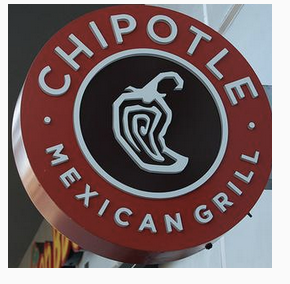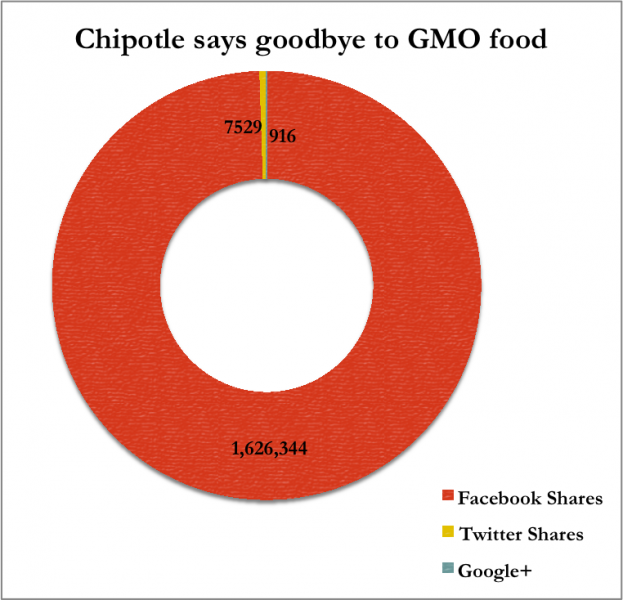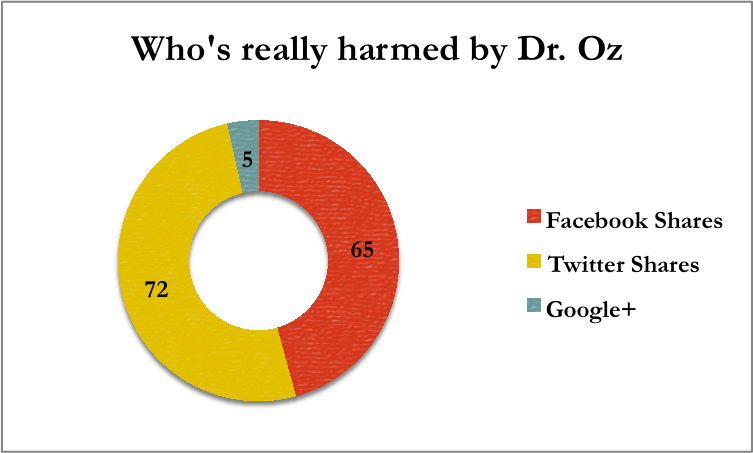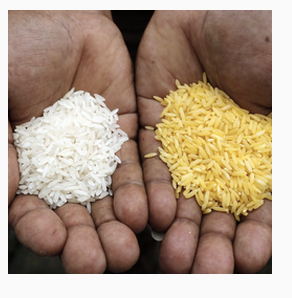Each month, the Alliance tracks the world s top news and opinions on agricultural biotechnology. If you or someone in your organization is interested in contributing reports to the Monthly Monitor, please let us know at allianceforsci@cornell.edu. We always encourage you to submit important news reports from your region.
1. Chipotle Stops Using GE Ingredients

 Chipotle Mexican Grill announced last month that it has removed all ingredients made from GMOs from its menu, except for beverages. Although the move is part of a growing trend in the food industry (food companies such as Nestle, Pepsi, and Kraft all have pledged to offer GMO-free products), Chipotle is the first major restaurant chain to declare itself GMO-free. Not surprisingly, the announcement from a company with more than 1700 stores in North America and Europe generated global media coverage and polarized responses.
Chipotle Mexican Grill announced last month that it has removed all ingredients made from GMOs from its menu, except for beverages. Although the move is part of a growing trend in the food industry (food companies such as Nestle, Pepsi, and Kraft all have pledged to offer GMO-free products), Chipotle is the first major restaurant chain to declare itself GMO-free. Not surprisingly, the announcement from a company with more than 1700 stores in North America and Europe generated global media coverage and polarized responses.
Michael Moss, author of Salt Sugar Fat: How the Food Giants Hooked Us, told NPR that he applauded Chipotle’s move. I think Chipotle, with this move, is once again positioning the company to respond to its customers concerns about food. Fool.com characterized the decision as a smart business move. But many others in the media had a more critical reaction. Mother Jones Tim McDonnell pointed out that, although Chipotle is responding to attitudinal research that shows consumer interest in GMO-free options, there is a problem with their strategy. GMOs are totally safe to eat. Citing the overwhelming scientific consensus on GMO safety, McDonnell called Chipotle s move little more than self-congratulatory PR. Vox headlines its story: Chipotle will stop serving GMO foods despite zero evidence they re harmful to eat. Slate s Alison Griswold questioned Chipotle s commitment to its slogan food with integrity by asking: Is this really making people think about food for the better? GMOs have the potential to do a tremendous amount of good. It was the Daily Beast s Lizzie Crocker s reaction to the Chipotle news that got straight to the heart of the matter. In her piece, We re paranoid about GMOs because of pseudo-science, Crocker quoted UC-Davis animal scientist Alison Van Eenenaam: Where is the evidence that everyone else s products lack integrity, as their campaign suggests?
The LA Times, Chicago Tribune, and NPR s Dan Charles also published opinions harshly criticizing Chipotle. See Charles piece five reasons we can t take Chipotle s GMO announcement all that seriously. Despite the criticism, this is just the beginning of Chipotle s GMO-free commitment; the company said it eventually aims to remove meat from animals that feed on GMO corn or soybean from its menu.
2. Dr. Oz Faces Mounting Criticism For Promoting Junk Science on Health Remedies, GMOs

 Dr. Mehmet Oz, the celebrity physician nicknamed America s Doctor, faced furious criticism in April for offering health advice that was not supported by sound science, and for giving voice to views such as those of anti-GMO activist Jeffrey Smith that grossly conflict with the scientific consensus.
Dr. Mehmet Oz, the celebrity physician nicknamed America s Doctor, faced furious criticism in April for offering health advice that was not supported by sound science, and for giving voice to views such as those of anti-GMO activist Jeffrey Smith that grossly conflict with the scientific consensus.
Earlier this month, a group of 10 physicians wrote a letter urging Columbia University to fire Dr. Oz from his post as vice chairman of the department of surgery. There were many articles about Dr. Oz, but perhaps no single story was as impactful as Vox health reporter Julia Belluz s April 16 feature, The Making of Dr. Oz: How an Award Winning Doctor Turned Away from Science and Embraced Fame. Belluz traces Oz s career, from his early beginnings as a highly regarded cardiac surgeon at Columbia to his spectacular success as a television personality. The piece examines Oz s embrace and promotion of weight-loss cures and anti-aging tricks that had little basis in science or evidence-based medicine.
Read Belluz s Vox feature here. And for a sampling of the coverage of the controversy, see the New York Times, CNN s Who s Really Harmed By Dr. Oz, and Dr. Oz s own response to his critics.
3. EU Approves GM Crops, Pushes Forth Plan to Let Member States Decide
 Last month, the European Union generated widespread media coverage with two major announcements on biotech foods. The EU authorized 10 new types of GM maize, soybeans, cotton, and oilseed rape as either human food or animal feed. They are the first new GM crops approved by the EU since 2013, according to Reuters. The EU also announced the details of its plan approved by the European Parliament in January to allow its individual member states to decide for themselves whether to cultivate GE foods.
Last month, the European Union generated widespread media coverage with two major announcements on biotech foods. The EU authorized 10 new types of GM maize, soybeans, cotton, and oilseed rape as either human food or animal feed. They are the first new GM crops approved by the EU since 2013, according to Reuters. The EU also announced the details of its plan approved by the European Parliament in January to allow its individual member states to decide for themselves whether to cultivate GE foods.
The plan means that countries such as Spain, the U.K, and the Netherlands which want GMOs would no longer be stymied by countries that oppose GMOs such as France, Austria and Hungary. While some see the benefits of the compromise plan after years of bitter dispute, the EU s decision would effectively sideline the European Food Standards Agency and give individual member states the right to ban GM for nonscientific reasons. US and Latin American trade representatives critical of the plan say it would wreak havoc on agricultural trade with Europe, by fracturing the 28-nation bloc. The European Parliament and EU national governments must approve the commission s proposal before it can become law. See coverage from ABC News, the Wall Street Journal, and AFP story.
4. Germany s National Academy of Science Strongly Endorses GM Crops
 The debate over the future of GM crops is growing in Germany, reported Ned Stafford in Chemistry World. In late March, Leopoldina, Germany s national academy of sciences, strongly endorsed the adoption of GM crops in a statement that highlighted the safety of modern molecular breeding and its economic and environmental benefits.
The debate over the future of GM crops is growing in Germany, reported Ned Stafford in Chemistry World. In late March, Leopoldina, Germany s national academy of sciences, strongly endorsed the adoption of GM crops in a statement that highlighted the safety of modern molecular breeding and its economic and environmental benefits.
The GM statement, issued by the country s oldest scientific society, comes as the debate over the future of GM foods begins in the Bundestag, Germany s lower house of parliament. In anticipation of the approval of the EU s plan to shift authority on GMO to member states, anti-GMO activists and politicians, including the country s environment minister Barbara Hendricks, are backing efforts to ban cultivation of GM crops in Germany.
Matin Qaim, a member of Lepoldina s GMO working group and a professor of agricultural economics at the University of G ttingen, told Chemistry World that the threat of a GM ban by the German government triggered Leopoldina s statement. As scientists we are not in the business of negotiating politics, Qaim said, adding that the potential risk to science of remaining silent is too great. A permanent ban on GMO cultivation in Germany would be a death sentence for plant biotech research in Germany. For more on the Leopoldina statement, read Future of GM in Germany hangs in the balance.
5. Japanese Farmers Petition for GM Field Tests
 On April 7, a coalition of 50 Japanese farmers in the cities of Iwamizawa and Kitami formally submitted a petition requesting field trials of GM soybean, maize, and sugar beet. According to ISAAA, the petition, submitted to the Hokkaido Research Organization, is the first effort initiated by Japanese farmers to test GM crops in the field.
On April 7, a coalition of 50 Japanese farmers in the cities of Iwamizawa and Kitami formally submitted a petition requesting field trials of GM soybean, maize, and sugar beet. According to ISAAA, the petition, submitted to the Hokkaido Research Organization, is the first effort initiated by Japanese farmers to test GM crops in the field.
The petition comes after more than 20 year of studies and surveys by Hokkaido farmers on GM crops, and a March presentation by ISAAA s Dr. Rhodora R. Aldemita on lessons learned from Bt biotech crop adoption in the Phillippines. Hokkaido, Japan s northernmost island, is the country s breadbasket. The island accounts for nearly one-fourth of the country s total arable land, and is its largest producer of soybeans, wheat, potatoes, and corn. Because of a 2005 local ordinance, Hokkaido s farmers have been unable to grow GM crops, which ISAAA describes as practically banning GM crops.
